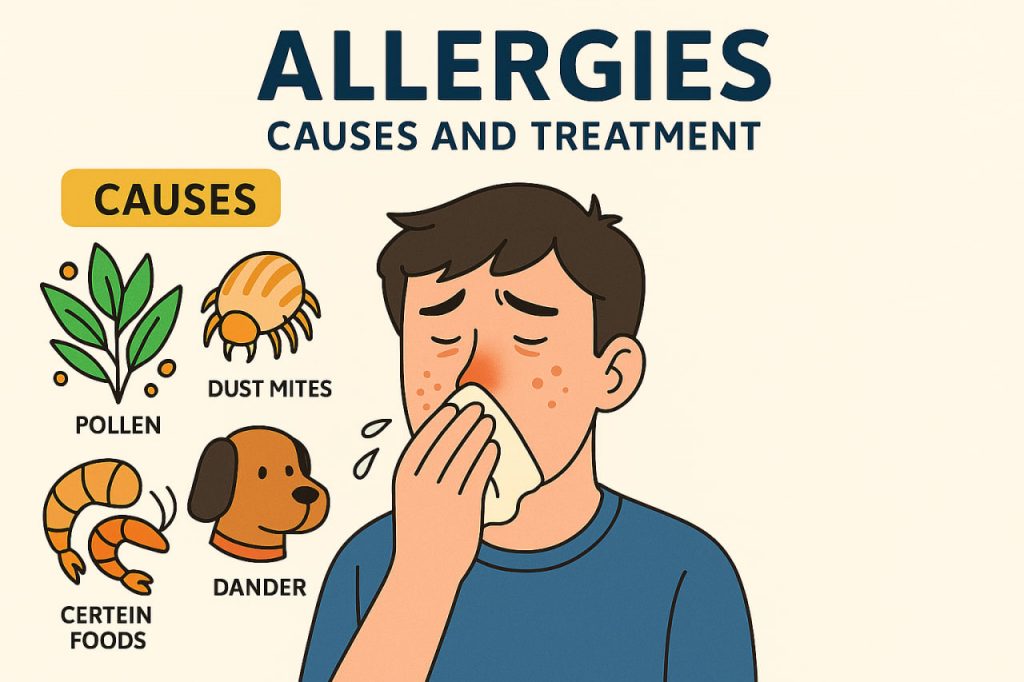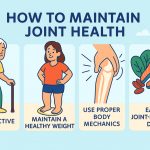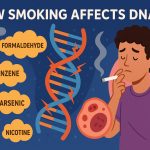Allergies are abnormal immune system reactions to substances that are typically harmless for most people. These substances, called allergens, can be found in food, air, plants, animals, and more. When a person with allergies is exposed to an allergen, their immune system overreacts, releasing chemicals like histamine that cause symptoms.
Allergies affect millions of people worldwide and can range from mild to life-threatening.
Common Causes of Allergies
Allergic reactions occur when the immune system misidentifies a harmless substance as a threat. Common allergens include:
- Pollen from trees, grass, and weeds
- Dust mites and mold
- Pet dander
- Certain foods (e.g., peanuts, shellfish, milk, eggs)
- Insect stings (bees, wasps)
- Medications (e.g., penicillin)
- Latex and other contact materials
Genetics also play a role. If one or both parents have allergies, their children are more likely to develop them.
Common Allergy Symptoms
The symptoms vary depending on the allergen and the area of the body affected. They may include:
- Sneezing, runny or stuffy nose (allergic rhinitis)
- Itchy, red, or watery eyes
- Skin rashes or hives
- Swelling, especially of the face or throat
- Coughing, wheezing, or shortness of breath (asthma)
- Nausea, vomiting, or diarrhea (food allergies)
- Anaphylaxis: a severe, potentially life-threatening allergic reaction
Symptoms may be seasonal (like hay fever) or occur year-round.
Diagnosis and Testing
If you suspect you have an allergy, see a healthcare provider or allergist. They may recommend:
- Skin prick tests: small amounts of allergens are applied to your skin
- Blood tests: measure immune response to allergens (IgE levels)
- Elimination diets: used to detect food allergies
Proper diagnosis helps determine triggers and guides treatment.
How to Treat and Manage Allergies
1. Avoid Allergens
The most effective strategy is to identify and avoid your specific triggers when possible.
2. Medications
Please do not self-medicate. Consult your doctor before taking any medication.
3. Immunotherapy (Allergy Shots)
This involves receiving regular injections or tablets containing small amounts of allergens to gradually desensitize the immune system. It can reduce or eliminate allergy symptoms over time.
4. Lifestyle Adjustments
Using air filters, washing bedding frequently, keeping pets out of bedrooms, and checking pollen forecasts can reduce exposure to triggers.
Glossary
- Allergen – A substance that causes an allergic reaction
- Histamine – A chemical released by the immune system during allergic reactions
- Anaphylaxis – A severe, rapid allergic reaction that can be life-threatening
- Immunotherapy – A medical treatment to build tolerance to allergens
- IgE – A type of antibody involved in allergic responses


